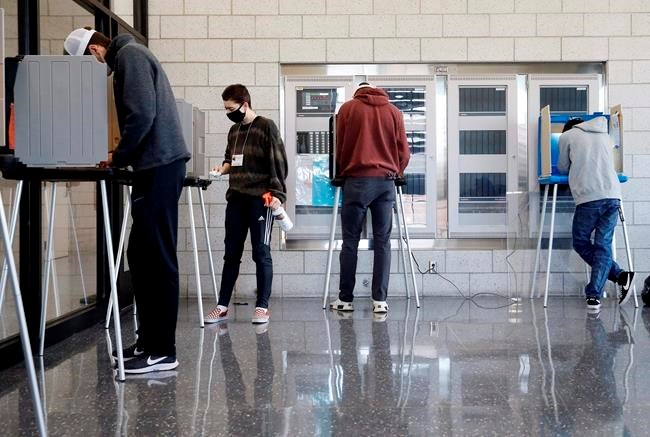WASHINGTON — In Spalding County, Georgia, machine problems led to a two-hour extension for voting. Wait times stretched beyond an hour at four voting
Minor problems like these happen during every election. But Tuesday's voting appeared largely free of any major glitches — despite being held during a deadly pandemic that has killed more than 230,000 Americans and infected more than 9 million.
The FBI was investigating reports of efforts to discourage people from voting using automated calls in a few states. Such reports are common in every election.
But there were no signs Tuesday of large-scale voter intimidation efforts or clashes at the polls, as some had feared, given the intensity on either side of the hotly contested race between Republican President Donald Trump and Democrat Joe Biden.
The Homeland Security Department's cybersecurity agency said earlier in the day that it had seen no apparent signs of any malicious cyberactivity, but also noted that it was too soon to declare victory.
Still, some polling places opened late, and machines or the software that powers them malfunctioned in some counties in the key states of Ohio, Pennsylvania, Georgia and Texas.
As the novel coronavirus took root in the U.S., officials repeatedly urged voters to cast their ballots early or by mail, in hopes the advance voting would ease some of the problems that materialized during the primaries, such as long lines and hours-long waits.
More than 102 million voters heeded that advice, a record number that represented 73% of the total vote in the presidential election four years ago.
Darlene Superville, The Associated Press


